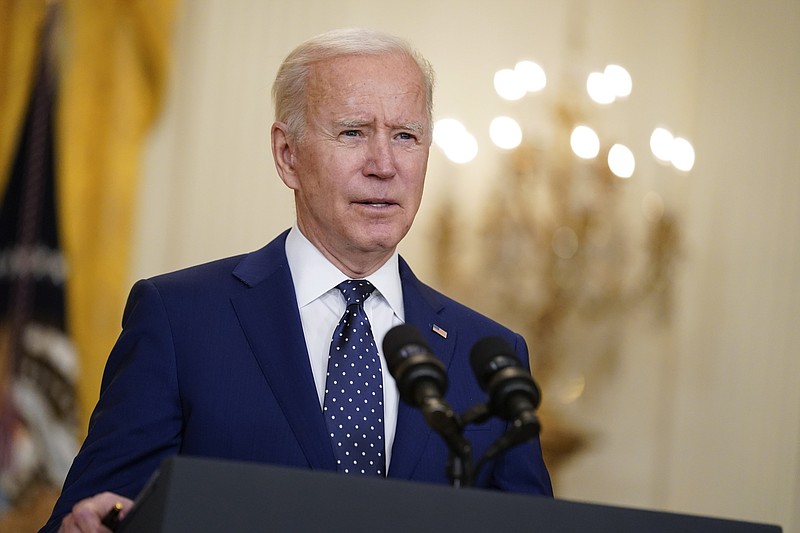WASHINGTON -- President Joe Biden will pledge to cut U.S. greenhouse gas emissions at least in half by 2030 as he convenes a virtual climate summit with 40 world leaders, according to three people with knowledge of the White House plans.
The nonbinding but symbolically important pledge is a key element of the summit, which begins Thursday as world leaders gather online to discuss strategies to combat climate change.
The emissions target has been eagerly awaited by all sides of the climate debate. It will signal how aggressively Biden wants to move on global warming, a divisive and expensive issue that has riled Republicans to complain about job-killing government overreach even as some on the left worry Biden has not gone far enough to address a profound threat to the planet.
The three people who know about the White House plans spoke on condition of anonymity on Tuesday because they were not authorized to discuss the pledge.
Biden sought to ensure that the target is aggressive enough to have a tangible impact on climate change efforts, not only in the U.S. but throughout the world, while also achievable under a closely divided Congress.
Scientists, environmental groups and even business leaders have called on Biden to set a target that would cut U.S. greenhouse gas emissions by at least 50% below 2005 levels by 2030.
The 50% target would nearly double the nation's previous commitment and require dramatic changes in the power and transportation sectors, including significant increases in renewable energy such as wind and solar power and steep cuts in emissions from fossil fuels such as coal and oil.
The target Biden chooses "is setting the tone for the level of ambition and the pace of emission reductions over the next decade, Kate Larsen, a former White House adviser who helped develop President Barack Obama's climate plan, said last week.
Former Secretary of State John Kerry, Biden's top climate envoy, has been pressing global leaders, including his counterpart in China, for commitments and alliances on climate efforts.
Global carbon emissions are expected to surge this year as parts of the world begin to rebound from the coronavirus pandemic. They are on track to reach the second largest annual rise on record, according to a new projection by the International Energy Agency.
Global energy demand is on track to surpass 2019 levels, alongside continued growth in alternative energies, the Paris-based organization found.
Environmentalists had hoped that pandemic-related declines in emissions-fueling activity might signal a shift in consumption that could continue, but the sobering estimates foretell a different outcome.
With coal, oil and gas consumption kicking back up as economies reopen, the International Energy Agency predicted that energy-related carbon emissions will increase by 4.8% year-over-year.
Carbon emissions declined by 5.8% in 2020 -- the largest drop on record. The expected surge this year would leave 2021 levels at about 1.2% below 2019's.
Information for this article was contributed by Matthew Daly and Aamer Madhani of The Associated Press; and by Miriam Berger of The Washington Post.
